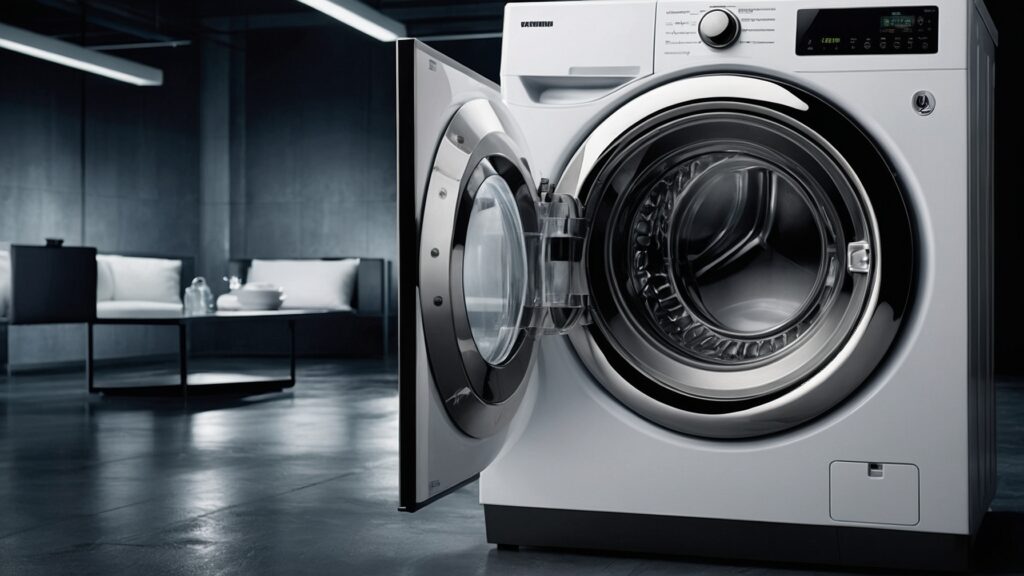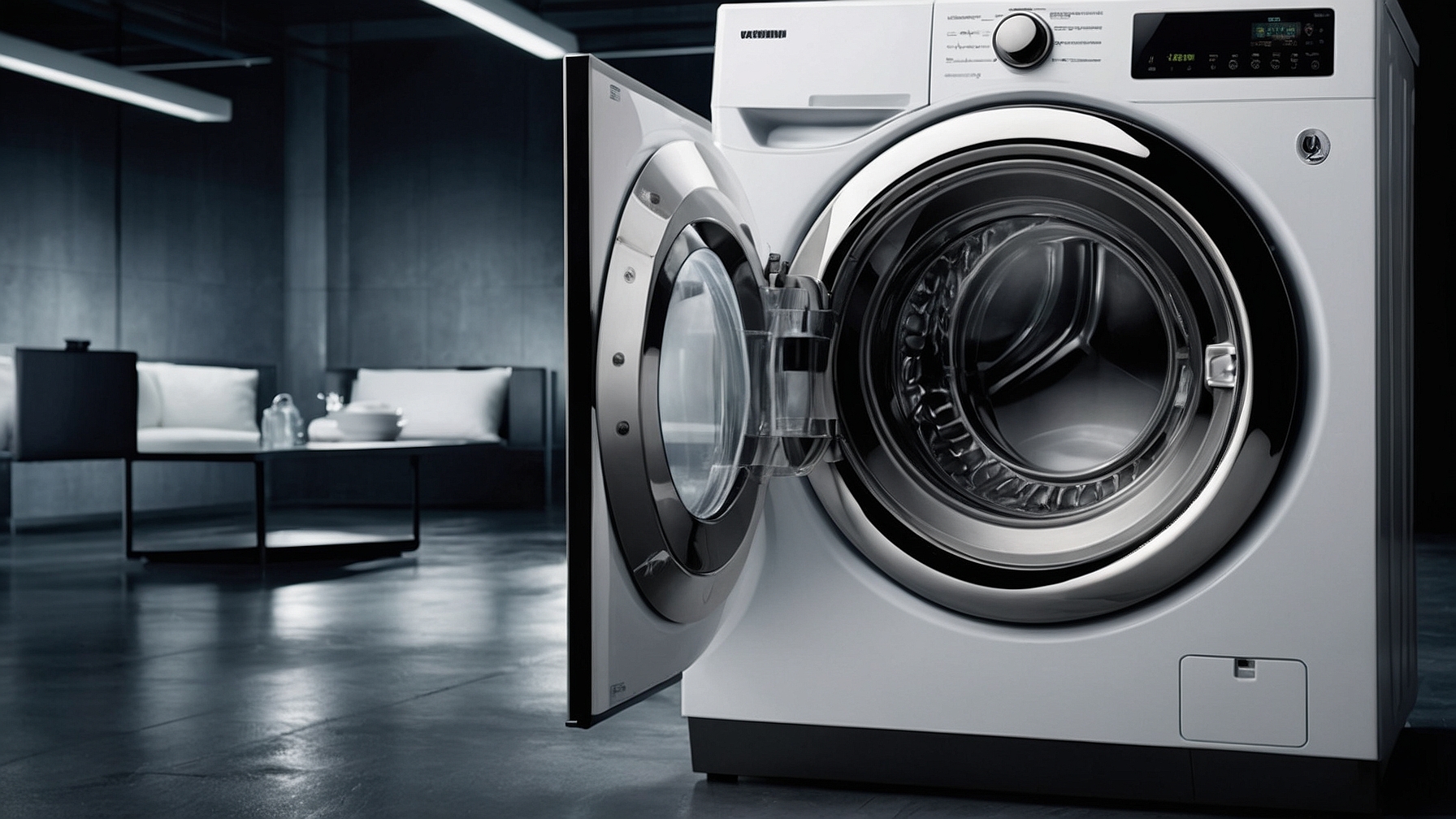Best Top Load Washers for Hard Water Areas
Hard water, rich in minerals like calcium and magnesium, can wreak havoc on washing machines. Over time, these minerals accumulate as limescale inside your machine, leading to clogged pipes, reduced water flow, and decreased efficiency. Additionally, hard water can cause damage to sensitive components, resulting in costly repairs or the need for replacement.
To help you navigate these challenges, we’ve curated a list of top-load washers equipped with features designed to mitigate the effects of hard water, ensuring longevity and optimal cleaning performance.

Table of Contents
Top Picks: Best Top Load Washers for Hard Water
1. GE GTW585BSVWS – 4.5 cu. ft. Top Load Washer
- Why It’s Great: Features a Deep Fill option, allowing for more water per cycle, which helps dilute mineral concentration.
- Key Features:
- Dual-action agitator for thorough cleaning.
- Stainless steel drum resists limescale buildup.
- Multiple water level selections to customize each load.
- Ideal For: Households seeking a balance between capacity and hard water resilience.
2. Whirlpool WTW8127LC – 5.2 cu. ft. Top Load Washer with Removable Agitator
- Why It’s Great: Offers a 2-in-1 removable agitator, providing flexibility and ease of cleaning.
- Key Features:
- Built-in faucet for pre-treating stains.
- Adaptive Wash technology senses load size and adjusts water levels accordingly.
- Stainless steel drum minimizes mineral adherence.
- Ideal For: Families needing versatility and robust performance in hard water conditions.
3. Maytag MVW7232HW – 5.3 cu. ft. Smart Top Load Washer
- Why It’s Great: Equipped with an Extra Power button to boost stain-fighting performance, even in hard water.
- Key Features:
- Smart features allow remote control and monitoring.
- Advanced Vibration Control™ ensures smooth operation.
- Stainless steel wash basket resists rust and limescale.
- Ideal For: Tech-savvy users seeking efficiency and durability.
Comparison Table
| Model | Capacity | Special Features | Hard Water Resilience |
|---|---|---|---|
| GE GTW585BSVWS | 4.5 cu. ft. | Deep Fill, Dual-Action Agitator | High |
| Whirlpool WTW8127LC | 5.2 cu. ft. | Removable Agitator, Built-in Faucet | High |
| Maytag MVW7232HW | 5.3 cu. ft. | Extra Power, Smart Features | High |
Tips for Maintaining Washers in Hard Water Areas
- Regular Descaling: Use washing machine cleaners specifically designed to combat limescale buildup.
- Use Liquid Detergents: They dissolve better in hard water compared to powdered detergents.
- Install a Water Softener: This can significantly reduce mineral content, prolonging the life of your washer.
- Opt for Higher Water Levels: When possible, use settings that allow more water per cycle to dilute mineral concentration.
Final Thoughts
Selecting a top-load washer equipped to handle hard water is crucial for maintaining appliance longevity and ensuring clean laundry. Models like the GE GTW585BSVWS, Whirlpool WTW8127LC, and Maytag MVW7232HW offer features specifically designed to combat the challenges posed by mineral-rich water.
By combining the right appliance with proper maintenance practices, you can enjoy efficient laundry days, even in hard water areas.
Why Hard Water Was Ruining My Old Washer
When I first moved to a hard water area, I had no idea it could affect my washing machine.
But within a year, my old washer started making strange noises, my clothes weren’t coming out clean, and I noticed white residue building up.
That’s when I learned the hard way: hard water can quietly destroy your machine if you’re not prepared.
Stainless Steel Tubs Are a Lifesaver
One of the first upgrades I made was choosing a washer with a stainless steel drum.
Unlike plastic tubs, stainless steel resists mineral buildup and doesn’t crack or get stained as easily.
It also lasts longer and helps your washer stay cleaner between cycles.
Why Deep Fill Settings Help
In hard water zones, more water actually helps.
Using a washer with Deep Fill or Auto-Sensing options lets the machine use enough water to dilute minerals and rinse detergent completely — so your clothes don’t feel stiff or chalky after drying.
You Can See and Feel the Difference
When I switched to a hard-water-friendly washer, I noticed my towels were softer, my whites were brighter, and my washer didn’t have that musty, mineral smell.
It might sound simple, but using the right washer made laundry feel fresh again.
Smart Features Help You Stay Ahead
Washers like the Maytag MVW7232HW notify you when maintenance is needed — which is huge if you’re dealing with mineral-rich water.
I love being able to run a self-clean cycle or descale reminder before things get bad.
Built-In Faucet Features Are Underrated
The Whirlpool WTW8127LC has a built-in faucet for pretreating, which I use all the time.
With hard water, stains tend to “set” faster, and this feature gives me a quick way to treat clothes before they even start the cycle.
Liquid Detergent Is Your Best Friend
If you’re in a hard water area, skip the powder — it clumps, sticks to the washer drum, and makes things worse.
All of the washers I recommend pair great with HE liquid detergents, which are easier on your washer and rinse out better.
Avoid Overloading in Hard Water Conditions
Hard water already makes it harder for soap to lather and rinse.
Overloading your washer just makes it worse.
That’s why high-capacity washers like the GE GTW585BSVWS help — they let clothes move more freely and rinse more thoroughly.
Routine Cleaning Is a Must
Even with a good washer, you still need to descale — especially if your water’s really bad.
I use an eco-friendly washing machine cleaner once a month to flush out mineral buildup and keep everything running smoothly.
Invest Now, Save Later
I learned the hard way that a basic washer just won’t cut it in a hard water area.
These top-loaders may cost a little more up front, but they’re built to survive and save you hundreds in repairs and replacements over the years.

